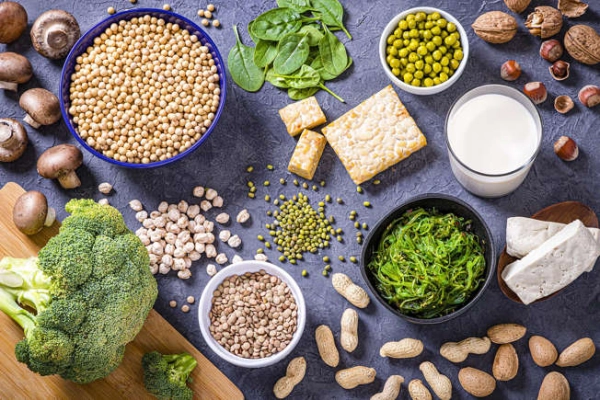Images/noimage.png
Foodie

Cauliflower
Ingredients Highlight: Cauliflower
~0.4 mins read
This is a very versatile vegetable that can be eaten raw, roasted, baked, boiled or fried.
On its own, cauliflower is almost tasteless, this makes it a great choice to bulk up other types of food at very low calorie point.
You will find cauliflower where fresh ingredients like cabbage and green beans are sold.
Alternatively, you can show vegetable mallams the picture below; they will tell you where to buy it. It is a good source of Vitamin C and Potassium.
Images/noimage.png
Foodie

A List Of 12 Foods That Should Be Consumed Daily For Optimal Health.
~3.2 mins read
A lot of confusing diet information exists
There is so much information out there on what to eat. Some say that carbs are bad, while others claim they are the answer. And then there's vegan diets, paleo diets, etc.
'How Not to Die'
It can all be incredibly confusing. However, one doctor, Dr Michael Greger, the author of the book 'How Not to Die,' claims to have the solution.
Dr. Greger's Daily Dozen
After reading up on dozens upon dozens of nutritional studies and the effect different foods have on our body, Dr. Greger developed a daily checklist of foods he believes we should all eat daily for optimal health, which he calls 'The Daily Dozen.' Click on to learn about what one doctor believes to be the best and healthiest foods to nourish our bodies.
Beans
Full of fiber and protein and with a multitude of health benefits, Dr. Greger is a huge fan of beans. The doc says you should eat 3 servings of beans (e.g. ½ c. cooked beans, ¼ c. hummus) every day!
Berries
Berries are nutritional powerhouses full of anti-oxidants, so it is no surprise they are on the list. Dr. Greger recommends eating 1 serving a day which is around 1/2 a cup of fresh berries.
Other Fruits
We all know the old saying, "An apple a day keeps the doctor away." Well in this case, it seems like you need 3 apples a day or 3 pieces of fruit. The Daily Dozen includes three servings of other fruits each day.
Cruciferous Vegetables
Eating one serving (1/2 cup chopped) of cruciferous vegetables such as broccoli, cauliflower or kale will keep you trim and improve your health.
Greens
Doctors all agree that eating a diet rich in leafy greens can reduce the risk of obesity, heart disease, high blood pressure and mental decline. That's why Dr. Greger says you should have 2 serving every day, either 1 cup raw or 1/2 cup cooked.
Other vegetables
Another item on the Daily Dozen is 2 servings of other vegetables, around a 1/2 cup for each serving.
Flaxseed
Flaxseeds are chockfull of health benefits! They are high in fiber and omega-3 fatty acids, as well as phytochemicals called lignans. Dr. G wants you to eat 1 tablespoon of ground flaxseeds each day.
Nuts and Seeds
Not only are nuts delicious but they are also a good source of protein. Most nuts also contain at least some of these heart-healthy substances: unsaturated fats. The Daily Dozen stipulates that you eat 1/4 cup of nuts (unsalted, raw) or two tablespoons of nut butter a day.
Herbs and Spices
Dr. Greger is a fan of flavor so all herbs and spices are acceptable. However, he really wants people to eat 1/4 tsp of turmeric every day. The reason? It has been PROVEN to help with conditions such as arthritis, indigestion and irritable bowel syndrome.
Whole Grains
Fiber helps to lower cholesterol and keeps us full. So naturally the Daily Dozen includes 3 servings of whole grains. One serving is around 1/2 cup cooked grains or 1 slice of bread.
Beverages
By now, we all know the importance of drinking enough water every day. Dr. Greger wants you to drink 60 oz or 1.77 liters daily. You can drink plain water or also enjoy green tea or herbal teas.
Exercise
For optimal health moving your body is so important. Dr. Greger recommends exercising once a day for 90 minutes if it is a moderate activity or 40 min. for vigorous exercise.
Vitamin B12
You may have noticed that Dr. Greger doesn't include any animal products in his list. That is why a B12 supplement is very important. The doctor says you should take "2,000 mcg (µg) cyanocobalamin once each week (or at least 50 mcg daily), ideally as a chewable, sublingual, or liquid supplement taken on an empty stomach."
Advertisement

Link socials
Matches
Loading...
